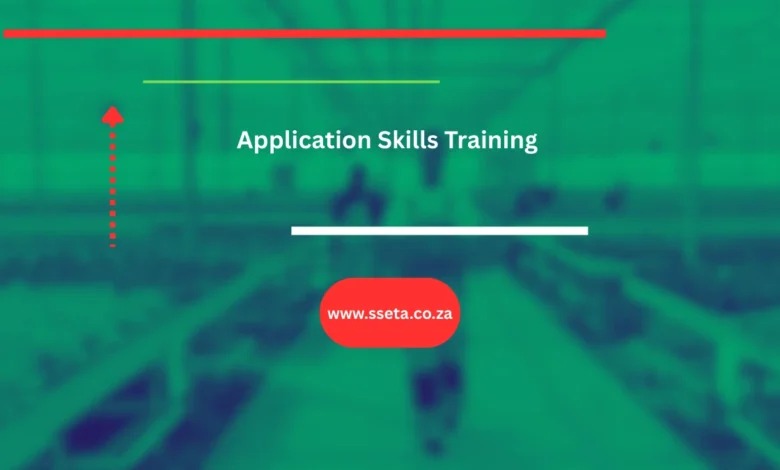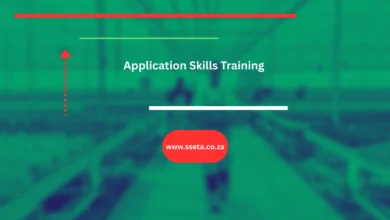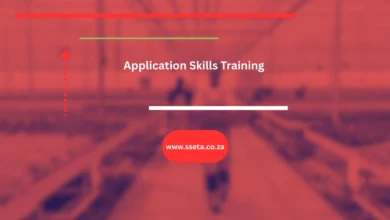DHE Work Integrated Learning Trainee Programme 2025: A Complete Guide for South African Applicants

DHE Work Integrated Learning Trainee Programme 2025, South Africa is investing heavily in its youth and future workforce. With industries rapidly changing, young graduates need more than classroom theory—they need real-world experience that bridges the gap between learning and doing. This is exactly what the Department of Higher Education and Training (DHE) seeks to achieve through its Work Integrated Learning (WIL) Trainee Programme 2025.
This opportunity is not just about work experience—it’s a launchpad into lasting careers. By blending academic learning with on-the-job exposure, the programme empowers young South Africans to build skills that employers truly value.
In this detailed guide, you’ll discover:
- What the WIL Trainee Programme is all about.
- Who qualifies and how to apply.
- The benefits of joining.
- Tips for standing out as an applicant.
- How to make the most of the experience.
Whether you’re a graduate ready to enter the workforce, or a student looking for practical training, this programme could be the game-changer you’ve been waiting for.
What is Work Integrated Learning (WIL)?
The Concept
Work Integrated Learning (WIL) goes beyond ordinary internships. It’s a structured learning process where participants combine academic theory with real workplace practice. Instead of just shadowing professionals, you actively contribute to projects, tasks, and problem-solving within an organisation.
This approach ensures you graduate not only with a qualification but also with job-ready skills that align with industry expectations.
Why WIL Matters in South Africa
South Africa faces a dual challenge: a youth unemployment crisis and a shortage of skilled professionals in key industries. WIL addresses both issues by:
- Giving graduates practical skills that increase employability.
- Helping companies find and groom future talent.
- Closing critical skills gaps in industries vital to the economy.
DHE’s Vision for the WIL Programme
The Department of Higher Education and Training (DHE) leads national efforts to prepare youth for careers. Through the WIL programme, DHE aims to:
- Combat youth unemployment by creating clear career pathways.
- Develop future leaders in industries like engineering, IT, business, and education.
- Match training with demand, ensuring graduates are ready for real jobs.
- Strengthen partnerships between higher education institutions and employers.
The 2025 intake builds on years of success, expanding opportunities for South Africans who want to gain workplace exposure while contributing to their country’s growth.
Benefits of Joining the DHE WIL Trainee Programme
Joining the WIL programme opens doors far beyond your training period. Some of the biggest benefits include:
1. Real Work Experience
Instead of relying only on theory, you’ll work on actual projects, apply what you’ve studied, and learn directly from professionals.
2. Higher Employability
Graduates with practical training are more attractive to employers. Many WIL participants go on to secure permanent positions in the same organisations.
3. Networking Opportunities
You’ll meet mentors, colleagues, and professionals who can guide your career and connect you to future job opportunities.
4. Professional Growth
Apart from technical skills, you’ll gain soft skills like teamwork, time management, communication, and adaptability—qualities employers value.
5. Contribution to National Goals
By participating, you are helping South Africa close skills gaps and strengthen its workforce, making the country more competitive globally.
Visual Idea: An infographic showing “5 Benefits of the DHE WIL Programme” with icons for career, experience, networking, soft skills, and nation-building.
Who Can Apply? Eligibility for 2025
The DHE sets clear eligibility requirements to ensure the programme benefits the right candidates.
1. Academic Requirements
- A diploma or degree in a relevant field.
- Good academic performance (some fields may require minimum pass rates).
- Proof of completed coursework or credits, depending on the programme.
2. Citizenship and Residency
- Applicants must be South African citizens.
- In some cases, permanent residents may also qualify.
3. Age Criteria
- Most opportunities target youth aged 18–35.
- Exceptions may exist depending on the sector.
4. Personal Qualities
Beyond formal requirements, the DHE looks for candidates who are:
- Motivated and eager to learn.
- Passionate about their chosen career.
- Able to adapt to workplace culture and expectations.
How to Apply: Step-by-Step Guide for 2025
Applying correctly is crucial. Here’s a step-by-step roadmap to help you navigate the process.
Step 1: Find Opportunities
- Visit the official DHE website regularly.
- Check government job portals.
- Ask your university career office for updates.
Step 2: Prepare Your Documents
You’ll need:
- Certified copy of your ID.
- Academic transcripts or qualification certificates.
- Updated CV highlighting skills and achievements.
- Motivation letter explaining why you want to join.
Step 3: Craft a Strong Application
- Tailor your CV to highlight relevant experiences (even part-time or volunteer work).
- In your cover letter, explain how the WIL programme aligns with your career goals.
- Use professional formatting and proofread carefully.
Step 4: Submit Your Application
- Follow the instructions for submission—online, email, or in person.
- Double-check deadlines. Late applications are rarely considered.
Step 5: Confirmation
- Successful submissions usually receive an acknowledgment email.
- If not, follow up with the listed contact office.
Visual Idea: A simple timeline graphic showing the steps: Find → Prepare → Apply → Submit → Confirmation.
What Happens After You’re Accepted?
Onboarding and Orientation
You’ll begin with an induction programme that introduces you to the organisation, its culture, and your responsibilities.
Mentorship and Training
- You’ll be paired with experienced professionals.
- Expect hands-on training, project involvement, and skills development workshops.
Performance Evaluation
Your progress will be monitored through assessments and regular feedback sessions. These evaluations help shape your growth and may influence future job offers.
How to Maximize Your WIL Experience
1. Be Proactive
Take initiative, ask questions, and seek out learning opportunities.
2. Embrace Feedback
Constructive criticism is part of the process. Use it to improve your performance.
3. Build Relationships
Networking is as valuable as skills. Maintain professional relationships that could support your career later.
4. Keep Records
Document your achievements, tasks, and projects. This evidence will strengthen your CV and future applications.
5. Think Long-Term
Use the programme as a stepping stone. Whether you pursue full-time work or further studies, the experience will guide your decisions.
Frequently Asked Questions (FAQ)
1. Do trainees receive stipends?
Yes. Most placements include a monthly stipend to help cover basic expenses.
2. How long does the programme last?
Duration varies but typically ranges from 6 months to 1 year, depending on the field.
3. Is the programme accredited?
Yes. WIL programmes are structured in line with South Africa’s national qualifications framework.
4. Can I apply while still studying?
Usually, you must have completed your qualification. However, some programmes may consider final-year students.
5. Will I get a permanent job?
While not guaranteed, many WIL participants transition into full-time employment after completing their training.
Useful Resources for Applicants
- Department of Higher Education and Training (DHE) – official updates and applications.
- SA Youth and Government Job Portals – frequently advertise trainee opportunities.
- University Career Services – partner with DHE to place students.
Visual Idea: A sidebar or infographic with clickable resource links for easy navigation.
Conclusion: Your Pathway to a Brighter Career
The DHE Work Integrated Learning Trainee Programme 2025 is more than a career opportunity—it’s a chance to shape your future. By combining academic learning with real-world application, it bridges the gap between education and employment, ensuring young South Africans are well-prepared for the challenges of the modern job market.
If you’re serious about building a fulfilling career, this is your moment. Apply with confidence, prepare thoroughly, and commit to making the most of the journey. The skills, connections, and experiences you gain will open doors far beyond 2025.
Your career starts here. Don’t miss the chance to be part of South Africa’s skills revolution.


